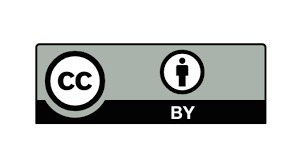Relación entre la memoria operativa y el cálculo mental con los números naturales en estudiantes del grado 8º del Instituto Técnico Mercedes Abrego de San José de Cúcuta
Relación entre la memoria operativa y el cálculo mental con los números naturales en estudiantes del grado 8º del Instituto Técnico Mercedes Abrego de San José de Cúcuta
Main Article Content
Throughout the twentieth century and the twenty-first in the field of mathematics, has been a stream of authors and scientists have been interested in the how and why of how the human brain; and even if the information within the mind is processed. For this reason; The following article aims to analyze the possible relationship between working memory corresponding to that proposed by Baddeley and Hitch (1974) model of memory and mental arithmetic with natural numbers eighth graders (8th) by applying a descriptive correlational methodology character quasi experimental based on an associative, constructivist theoretical approach with studies of working memory proposed by Baddely and Hitch (2003). The instrument used was the memory test battery of Employment, Pickering, Gathercole and Bouquets. Medium and a linearly significant relationship between mental arithmetic tasks and the phonological loop was found; also a good inclination to remember the digits and a lower proportion of pseudo words it shows.
Downloads
Article Details
lsina P. Ángel (2001). La Intervención de la memoria de trabajo en el aprendizaje del Cálculo Aritmético. Tesis doctoral. Universidad Barcelona. Citado 07-05-2001. Disponible en Internet <http://www.tesisenred.net/handle/10803/4730>.
Bernal T. Cesar (2000). Proceso de Investigación Científica en Ciencias de la Administración. Tesis. En línea: http://intellectum.unisabana.edu.co:8080/jspui/bitstream/10818/3061/1/131666.pdf
Briones Guillermo (2008). Métodos y técnicas de investigación para las ciencias sociales. Libro Editorial Trillas. México; P. 219.
Campbell D, Stanley J. (1982), Diseños Experimentales y Cuasi experimentales en la Investigación Social. Buenos Aires: Ammorrortu Editores; P. 76-8.
Cortés F. Janette, Backhoff Eduardo y Organista S. Javier (2005). Análisis de estrategias del cálculo estimativo en escolares de secundaria considerados buenos estimadores. Trabajo de Investigación. Universidad autónoma de México. Revista Mexicana de Investigación educativa. Citado 01-05-2005. Disponible en Internet: http://www.comie.org.mx/v1/revista/portal.php?idm=es&sec=SC03&sub=SBB&criterio=ART00099
Gómez M. Marcelo (2006). Introducción a la Metodología de la investigación científica. Libro. En línea: http://books.google.com.co/books?id=9UDXPe4U7aMC&pg=PA1&lpg=PA1&dq=G%C3%B3mez+M.+Marcelo(2006)&source=bl&ots=b7jMJZlRBT&sig=Qrl9sNWZsg5A3WQEEWM0gcI0b0&hl=es&sa=X&ei=eXX2U8CfE5auyASFsoGoDw&ved=0CBoQ6AEwAA#v=onepage&q=G%C3%B3mez%20M.%20Marcelo%20(2006)&f=false
SAÍZ DOLORES. ALSINA ÁNGEL. El papel de la memoria trabajo en el cálculo mental un cuarto de siglo después de Hitch. Trabajo de Investigación. Universidad de Barcelona. Citado 01-02-2003. Disponible en Internet <http://dugi-doc.udg.edu/bitstream/10256/1808/1/papel%20de%20la%20memoria.pdf>
Sierra F. Oscar y Ocampo G (2013). Tulia. El papel de la memoria operativa en las diferencias y trastornos del aprendizaje escolar.Citado 01-05-2005. Disponible en Internet: http://publicaciones.konradlorenz.edu.co/index.php/rlpsi/article/view/1238







